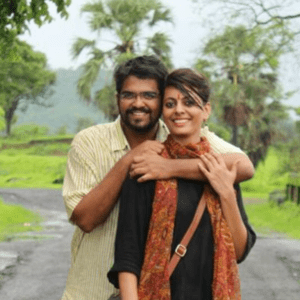In India, the legal system has provisions to protect women from domestic violence, dowry harassment, and sexual assault. Sections like 498A (Dowry Harassment), Domestic Violence (DV), and 376 (Rape) are crucial for safeguarding women’s rights. However, there is a growing concern about false cases being filed under these sections. Men facing such accusations often feel helpless and wonder why women are not penalized when these cases are proven false. This article explores the reasons behind this issue and its implications.
Understanding the Sections
Section 498A
Section 498A of the Indian Penal Code deals with cruelty by a husband or his family towards a wife. This includes physical and mental harassment related to dowry demands.
Domestic Violence Act (DV)
The Protection of Women from Domestic Violence Act, 2005, provides protection to women from physical, emotional, verbal, and economic abuse by their spouses or family members.
Section 376
Section 376 of the Indian Penal Code deals with the punishment for rape. It aims to protect women from sexual assault and ensure justice for victims.
Why False Cases Are Filed
Misuse of the Law
Some individuals misuse these laws to pressurize men, extort money, or settle personal scores. False allegations can ruin lives and reputations.
Lack of Immediate Consequences
One major reason for the rise in false cases is the absence of strict penalties for those who file them. When women file false cases and they are proven wrong, there are often no immediate legal consequences for them.
Social and Legal Support
Women who file these cases receive significant social and legal support. The system is designed to protect them, which sometimes leads to its misuse.
Why Women Are Not Penalized
Presumption of Innocence
The legal system often presumes that women, as the primary victims of domestic violence and sexual assault, are innocent. This presumption makes it difficult to penalize them when cases are proven false.
Fear of Discouraging Genuine Victims
Penalizing women for false cases might discourage genuine victims from coming forward. The fear of legal consequences can deter many from reporting actual crimes.
Judicial Discretion
Judges have the discretion to decide whether to penalize someone for filing a false case. Often, they choose not to, considering the broader implications for women’s rights.
Implications of Not Penalizing False Cases
Rise in False Cases

The absence of penalties for false cases leads to an increase in such cases. This misuse undermines the credibility of genuine victims and overburdens the legal system.
Impact on Men
Men falsely accused of crimes face severe emotional, social, and financial repercussions. Their reputations can be irreparably damaged, and they may suffer from mental health issues.
Legal Overload
False cases contribute to the backlog in the judiciary. Genuine cases get delayed, and the legal system becomes less efficient.
What Can Be Done?
Legal Reforms
Reforms are needed to address the misuse of these laws. Introducing penalties for filing false cases can act as a deterrent and ensure that the laws serve their intended purpose.
Educating the Public
Awareness campaigns can educate the public about the consequences of filing false cases. This can help in reducing the misuse of the law.
Judicial Sensitization
Judges should be sensitized to the issue of false cases. They should carefully scrutinize evidence before making judgments and consider penalizing false accusers when appropriate.
Support for Victims of False Cases
Support systems should be in place for those falsely accused. Legal aid, counseling, and social support can help them navigate the challenges they face.
Encouraging Genuine Complaints
While addressing the issue of false cases, it is crucial to ensure that genuine victims feel safe and supported in reporting crimes. A balanced approach is necessary to protect the rights of all individuals.
Use Social Media
Social media is a powerful tool to raise awareness and put pressure on authorities. Here are some individuals and organizations you can tag to amplify your cause:
- @PMOIndia (Prime Minister’s Office)
- @HMOIndia (Home Minister of India)
- @NCWIndia (National Commission for Women)
- @India_NHRC (National Human Rights Commission)
- @scindia (Supreme Court of India)
- @lawministry (Ministry of Law and Justice)
- @ncm_gov (National Commission for Minorities)
- @pib_india (Press Information Bureau)
- @mygovindia (MyGov India)
- @MoWCD (Ministry of Women and Child Development)
- @NCWIndia (National Commission for Women)
- @AmnestyIndia (Amnesty International India)
- @hrw (Human Rights Watch)
- @UNHumanRights (UN Human Rights)
- @WHO (World Health Organization)
Conclusion
The misuse of sections like 498A, DV, and 376 is a serious issue in the Indian legal system. The lack of penalties for filing false cases leads to an increase in such cases, causing harm to innocent men and overburdening the judiciary. Legal reforms, public education, and judicial sensitization are essential to address this problem. It is important to strike a balance between protecting genuine victims and preventing the misuse of the law. By doing so, we can create a fair and just legal system for everyone.

















What do you think?
It is nice to know your opinion. Leave a comment.